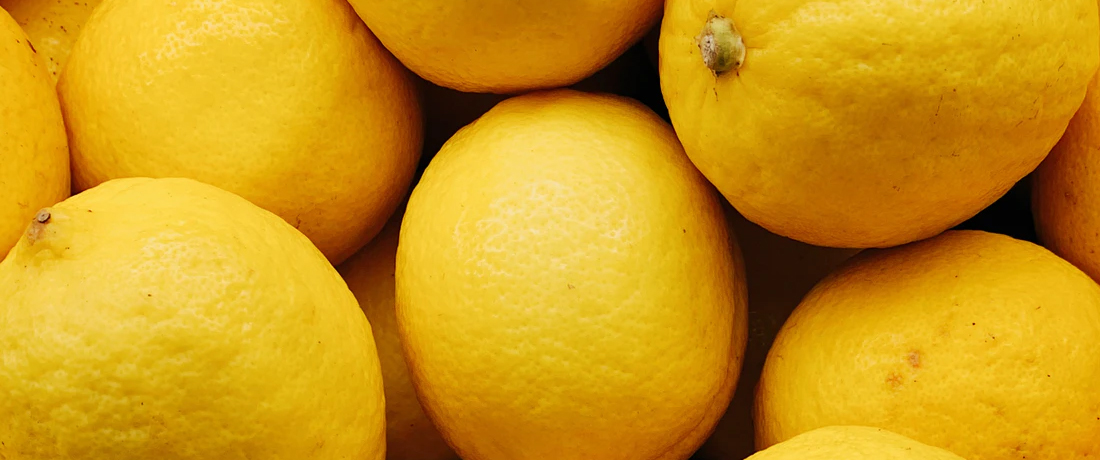
Lemons are that tree everyone wants in their backyard. They are useful for hedging, screening, espalier, producing some shade or as a specimen tree. Dwarf varieties are also popular choices for growing in a pot.
All varieties prefer full sun to part-shade and a well drained soil. They benefit from loads of organic matter at planting, they love a feed at least twice a year and dislike any competition around their roots.
They are all evergreen and self fertile. Lemons are used in cooking, drinks, desserts… and on your fish and chips!
 Important note about plant availability. Important note about plant availability.There are hundreds of factsheets on our website provided for your information. Not all plants will be available at all times throughout the year. To confirm availability please call (03) 8850 3030 and ask for the nursery. |
Varieties
Lisbon – A vigorous and thorny tree which reaches around 3-5m x 3-4m. Lisbon can be more cold tolerant than Eureka. Fruit is produced mainly in winter, with a smaller summer crop. The lemons are smooth skinned, large and juicy with a few seeds. The rind is thinner than Eureka.
Eureka – A vigorous tree which grows to around 3m x 3m. The biggest benefit is that the Eureka fruits all year round (with the heaviest crop in winter), so you are nearly always guaranteed to have lemons on the tree. The fruit is medium to large and highly juicy. It has a thick, pitted, rough rind and only a few seeds. They tend to hang on the almost thorn-less tree for a long period of time.
Thornless – This lemon originated in South Australia and is very similar to the Eureka, commonly referred to as the Thornless Eureka. The skin is smoother and finer than the Eureka.
Meyer – A smaller, more compact tree than Eureka or Lisbon, Meyer only grows to around 2.5m x 2.5m. Fairly frost hardy and consequently popular where frosts occur. It produces numerous crops of medium sized lemons throughout the year. Meyer is a hybrid between a lemon and an orange, which makes the fruit smoother, rounder and sweeter (less acidic) than a classic lemon. It has a thin, orange rind without the lemon zest flavour and amber flesh.
Lemonade – A vigorous and attractive tree with a reliable and heavy crop in winter. It is possible to produce a second smaller summer crop. The Lemonade looks like a lemon but can be eaten straight from the tree, just like a mandarin or orange. The fruit is a lot sweeter than a lemon, with a refreshing tang. It makes a refreshing drink when juiced.
Other interesting Citron
Buddha’s Hand – Originating in India, this has to be the most unusual citron. It has a fruit which resembles a hand with finger like segments. The fruit contains no flesh and is entirely made up of white pith. Although not commonly used in a culinary sense, it is traditionally used for perfuming clothes and rooms in China and Japan. The tree is vigorous, but still small. Perfect for those wanting something a little different.
Etrog – This unusual citron is best described as a lemon on steroids. It can grow to double the size of a standard lemon and is long and is elongated in shape with a thickish skin. The fruit is used in Jewish religious ceremonies.

